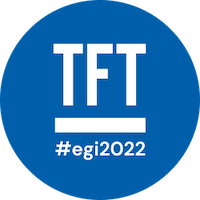Speaker
Description
Many end users of climate change information often need specialized products to perform their research, impact study or data analysis. For example, climate indices, like the standard ones defined by ECA&D and ETCCDI, cover most of the general needs. However, datasets provided on the climate data infrastructure ESGF are climate model output and only provide standard variables, such as temperature and precipitation, and not climate indices, such as the number of “Summer days” or the “Maximum consecutive dry days”, for example.
A python package to calculate climate indices, called icclim, is currently developed within the H2020 IS-ENES3 project. This package is using xarray and dask for very fast parallel execution and smaller memory footprint. But with data volumes as well as the number of datasets increasing very rapidly, it becomes very time consuming and uses a lot of computing and storage resources to calculate specific climate indices, even with icclim.
Providing those users datasets of climate indices pre-computed on CMIP6 simulations would be very valuable. Of course all specific needs cannot be taken into account (such as specific seasons, specific reference periods, etc.), but the most general ones can be fulfilled. The European Open Science Cloud (EOSC) is providing computing and storage resources through the EGI-ACE project and periodic Use Case calls, enabling the possibility to compute all those climate indices. In this EGI-ACE Use Case, icclim will be used to compute 49 standard climate indices on a large number of CMIP6 simulations and experiments, starting with the most popular ones. It could also be extended, time permitting, to the ERA5 reanalysis, CORDEX and CMIP5 datasets. The resulting climate indices datasets will later also be made available in the IS-ENES3 climate4impact (C4I) portal.
| Topic | EOSC Compute Platform |
|---|

